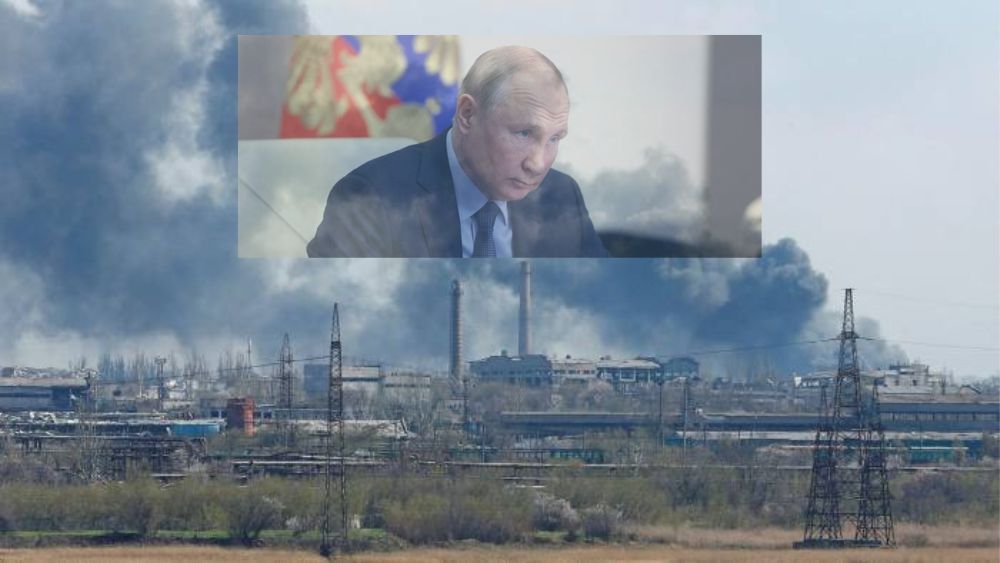An early take on the effective climate action implications of Russia’s invasion of Ukraine
More than a war
Vladimir Putin’s decision to invade Ukraine has not only made fools of all the experts who complacently assured us such a think was unthinkable.
It’s also fast-forwarded a new Cold War realignment, as the rest of the world is obliged to take sides.
Though it’s indelicate to point this out while we’re still in a state of shock, it has also precipitated an energy crisis that is bound to focus the minds of those who’d rather not, on our fossil fuel addiction.
It’s hard to take our eyes off the images of refugees, tanks, snipers and artillery bombardments from Ukraine. Having got used to seeing such things in black and white, it’s shocking to see them on TikTok.
But, as our leaders tell us, we must resist knee-jerk reactions. We need to pull back, see the bigger picture, understand the broader context, currents and consequences.
Putin, Ukraine, and carbon drawdown
There’s no Bigger Picture than the threat to human civilization posed by climate change, so let’s view Putin’s war through a See Through News lens, and analyse its impact on carbon drawdown.
We must first acknowledge it’s way too soon for anyone to know anything for sure, but given that we don’t have the luxury of waiting, we should at least try.
Under the apocalyptic war images from the Ukraine, headlines around the world are dominated by the energy implications of sanctioning Russia: pump prices to fill our cars, fuel bills to heat our homes, food basics, grain supply, fertiliser shortages. There seems to be nothing that won’t be untouched by the war, or won’t get more expensive as a result.
That’s to say, the consequences of our addiction to fossil fuels, and the full extent of our dependency, is now obvious to us all. This is important and – dare we say it – essential progress.
Our carbon addiction
Anyone with experience of addiction knows the first step to a solution is to acknowledge it.
Half a century of knowing about climate change, and possessing the technology but not the political will to do anything about it, has demonstrably not worked. Maybe it will take war, or the threat of it, to bring us to our collective senses.
Early talk has been promising, but so far mainly talk. Take the UK government, for so long against ‘green crap’ and the notion of subsidising renewable energy in the way it subsidises fossil fuels. The British PM has just declared himself a convert to massive-scale wind farms on the grounds not of preserving human civilisation, but National Security.
Whatever it takes, we suppose, but after so much denial and so many false dawns, we need to take our wins however they come.
But addiction is hard to break, and Big Oil is far from vanquished.
The wrong answer to the wrong question
No sooner had Britain parped its conversion to Big Wind than its PM flies to Saudi Arabia to beg them to pump more oil. Just to make their point about realpolitik and the thin veneer of principle hastily spray-painted on UK policies, his hosts marked his visit by executing dozens of prisoners,
Oh, and just after the UK’s major fracking pioneer announced it was giving up, cabinet ministers are talking it up again.
Re-framing renewable energy in the context of National Security may be a good thing, but it’s still far from certain if it will lead to significant real-world carbon reduction.
Similar calculations are playing out everywhere, particularly in governments sanctioning Russia.
But even these major national policy decisions may be missing the Bigger Picture.
An enemy even more implacable than Putin
Our biggest threat isn’t autocrats or oligarchs, but greenhouse gas molecules. The former come and go; the latter linger in our atmosphere, indifferent to who put them there or why.
Any solution will require coordinated global action. Any new Cold War – or worse, Hot War – would render that impossible. Our attention will, understandably but disastrously, be elsewhere, focused on immediate human tragedy.
Covid gave us a dress rehearsal. That too was a man-made global existential threat, which required a co-ordinated, science-based global effort to overcome it. We’ve fluffed that pretty badly so far, but what’s unfolding in the Ukraine could be even worse.
What are the chances we’ll respond better to this challenge? Will we step back from the brink, or continue to charge forward? We’re now confronted by some huge Ifs.
If Putin doubles down. If Russia hunkers down. If China steps up its political and even military support. If Xi sees an opportunity to emulate Putin’s taboo-breaking with an invasion of Taiwan..
If any or all of these happen, it’s hard to see any good outcomes for anyone other than the short-term profiteering of the Three-Headed Beasts.

